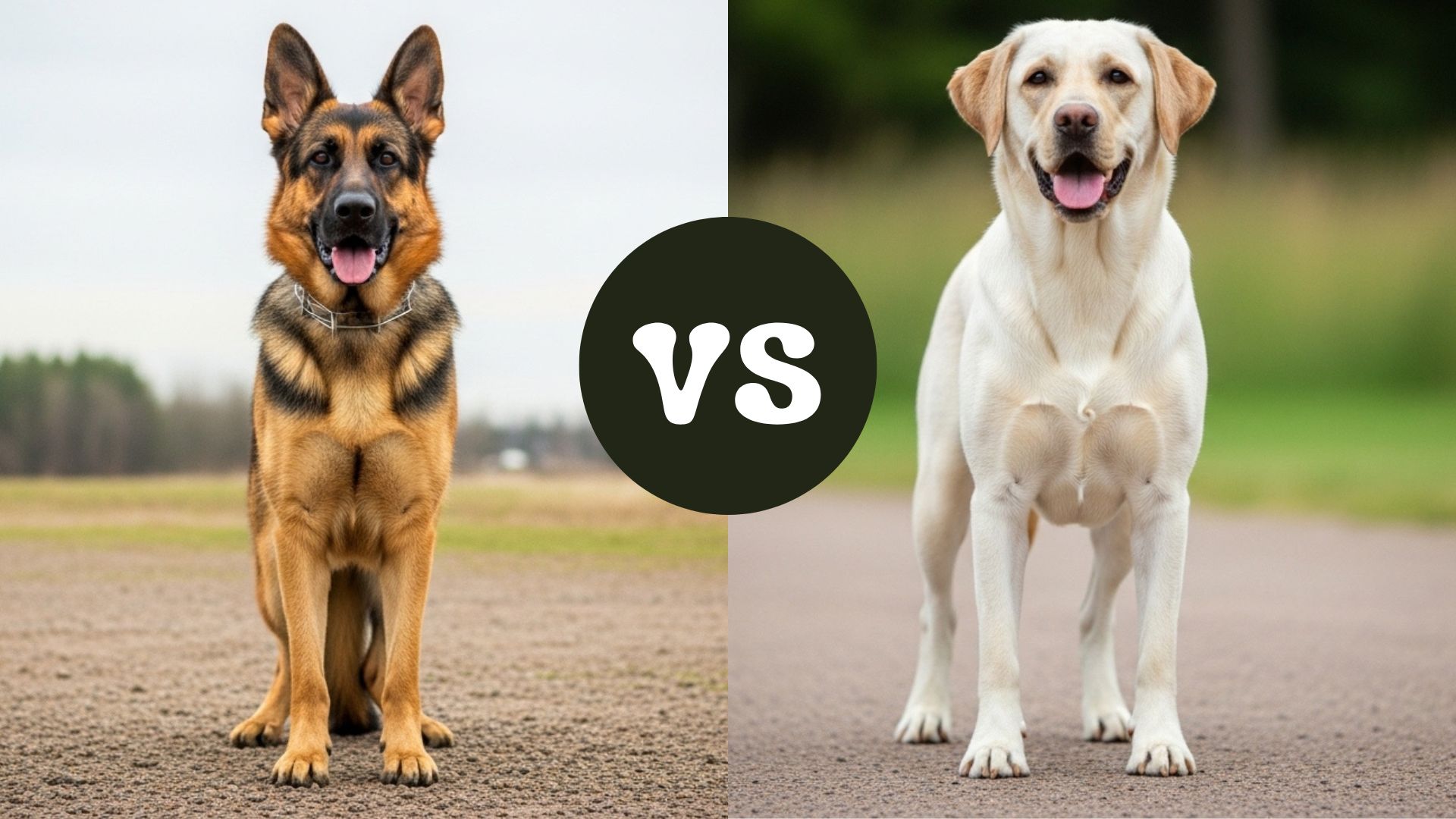Every dog owner, wannabe, or casual dog lover knows this debate. Two of the most popular dog breeds in the dog world: German Shepherd vs. American Labrador Retriever. Each brings huge hearts, big brains, and very different resumés.
One is a classic shepherd dog bred for protection and working life. The other is the ultimate retriever; friendly, food-motivated, and always ready to play fetch until the sun goes down.
But let’s hear the honest truth: neither is the “perfect dog” for anyone. They are both brilliant, loyal, and very much family dogs, but their needs, energy, and personalities vary a lot.
So, let’s break down the key differences and help you figure out which of these two breeds is actually perfect for your life.
Fun Fact!
Did you know Labs were originally fishermen’s helpers in Newfoundland, Canada, not hunting fields? They were prized for hauling nets and retrieving fish that escaped hooks. Meanwhile, German Shepherds were standardized as a breed by Max von Stephanitz in Germany in the late 1800s to create an ideal sheep herding dog that could also work on the farms and later as police and service dogs.
So, yeah!! Both breeds were basically made to be useful and very, very loyal.
German Shepherd vs. American Labrador
Size and Weight Differences
Short answer: Labs are solid and sturdy retrievers with a dense coat. German Shepherds are larger in frame and more elongated.
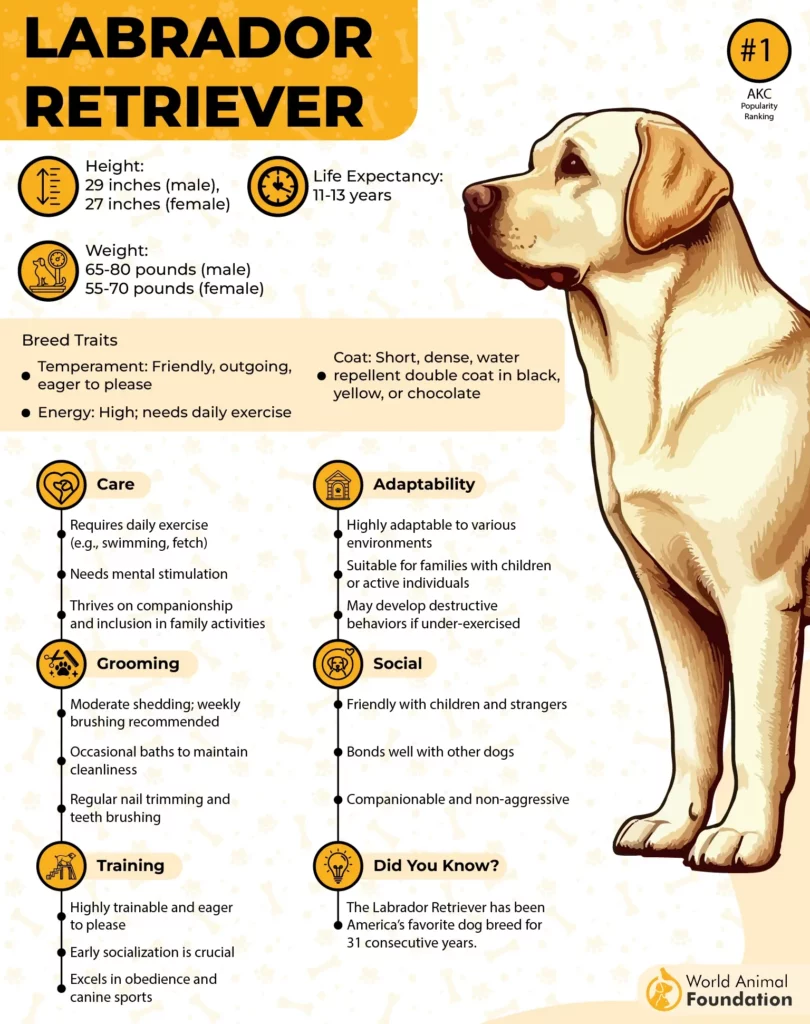
Labrador Retriever (or ‘American Labrador’) typically weighs between 65-80 pounds, and height is usually up to 24.5 inches. Males often fall toward the higher end. They have a broad chest, thick neck, and that trademark “otter” tail. A short coat with a water-resistant, dense undercoat. Great for swimmers and outdoor families, as per AKC.
German Shepherd dogs are usually 65-90 pounds for males; females are a bit lighter. They are taller in the shoulder (26 inches, almost) and often have a more graceful and athletic silhouette. They have a double coat (dense undercoat and a harsher outer coat), as per AKC.
If you are counting pounds because of apartment rules or vehicle space, both German Shepherds and Labrador Retrievers can be large dogs.
Lab tends to appear chunkier; German Shepherd is sleeker and more angular. Both weigh enough to need a reasonable living space and daily exercise.
Trainability and Intelligence Comparison
Both breeds are known to be intelligent dogs, but they show it in different ways.
Labrador Retriever is exceptionally people-focused and highly food-motivated, as per Medical News Today. And that is why these dogs are highly trainable for basic obedience. They have been therapy dogs and served in search-and-rescue roles. Labs rank as one of the most trainable popular dog breeds because they want to please and get rewarded.
German Shepherd is cited among the top intelligent dogs in the world. They are fast learners, excel at complex tasks, and are commonly employed as police dogs, service dogs, and guard dogs. Their intelligence is matched by strong independence and sometimes a protective streak.
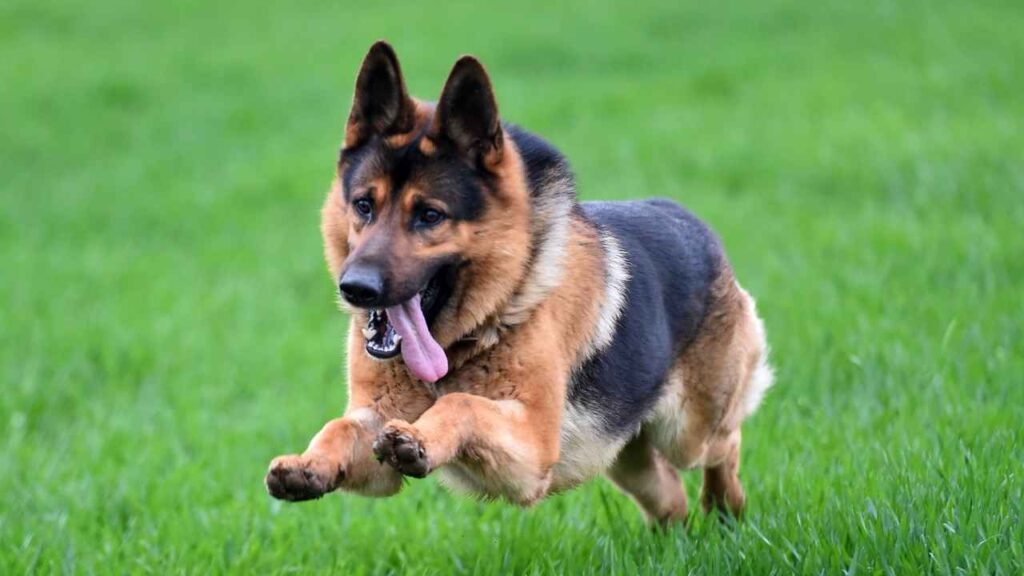
If you want a dog that will happily learn tricks and remain reliably obedient with consistent training, both are a great bet.
If you want a working partner for structured tasks, we’d lean slightly toward the German Shepherd for special roles (police, military, law enforcement, scent work). But Labs are the #1 at therapy and service roles because of their gentle nature and steady temperament.
Temperament and Personality Traits
This is where you notice the personalities.
Labs are friendly, goofy, and downright sweet dogs, best known as ‘Velcro dogs’ as well because they stick to their people. They are gentle with kids, tolerant with strangers, and are one of the most popular family pets. They do thrive on social interaction and training to prevent obesity and boredom.
German Shepherds are loyal, protective, and confident dogs. They form deep bonds with their family members and can be reserved or cautious with strangers. However, if you give themthe right socialization in early years, they are gentle and superb with kids and family, but they still need leadership and structure from their owners.
Both breeds are loyal. Labs lean toward the “unfailingly friendly” end of the spectrum; German Shepherds lean toward “watchful and incredibly devoted”.
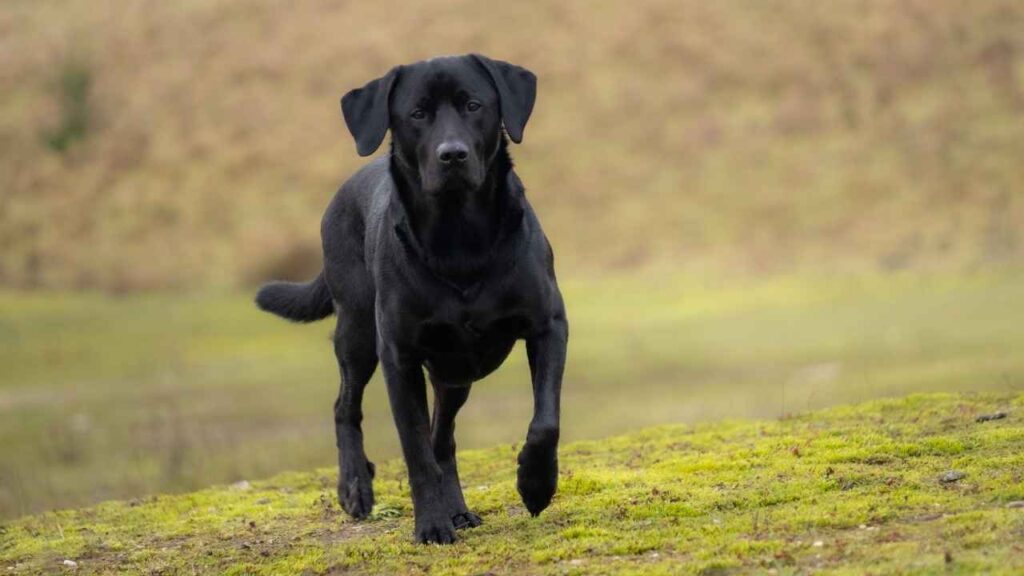
If you want an excellent family pet that’s also an excellent guard dog, the Shepherd edges ahead. If you want the classic family-friendly retriever vibe, Lab is your go-to.
Bite Force and Mouth Behavior
Let’s be frank. Dogs use their mouth a lot. It’s natural. So, understanding their bite force is a must before picking one to take home to your kids.
Labrador is a true retriever. The breed loves to carry, fetch, and mouth objects gently. Their “soft mouth” is famous among hunters and trainers because they retrieve without damaging the item. That said, because Labs often love chewing, puppies can be nippy if not taught bite inhibition early. Oh, and the Labs have a bite force of 230 PSI (Pounds per Square Inch).
German Shepherd dogs have strong jaws and are used in bite work for protection and police tasks. That does not mean they are aggressive by default. It is about training and structure. If you keep on giving them proper socialization and training from a young age, Shepherds are controlled and even-tempered. Their bit force is 238 PSI. It is more than a Lab’s, and rather a strong bite force.
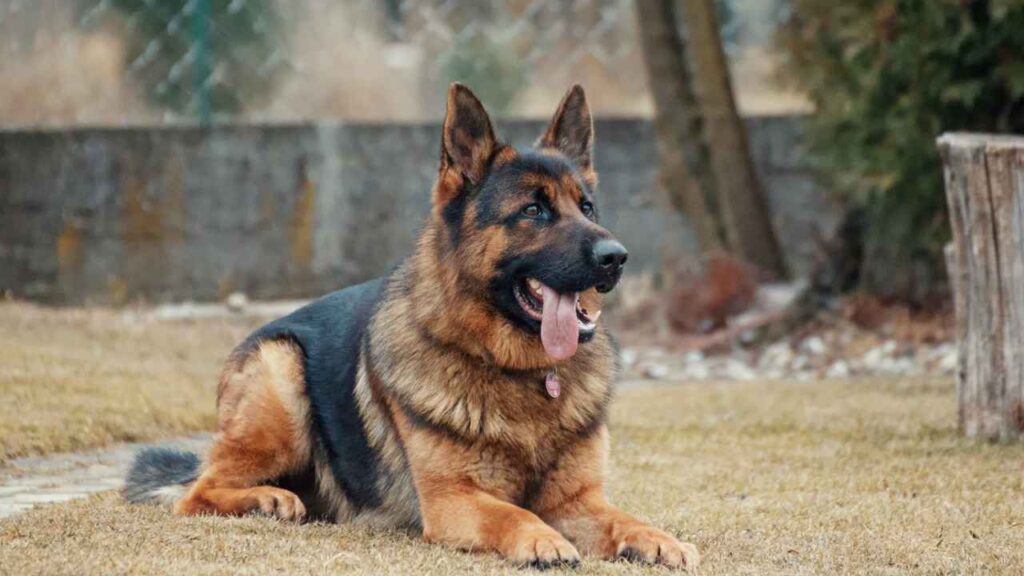
Both breeds can be trained to have excellent mouth manners. Early training and supervision around small children is highly important, especially during puppy teeth season.
Health, Longevity, and Common Health Issues
Dogs love to keep us guessing with common health problems and quirks. Both breeds have known issues that owners could watch for.
|
Health Issues | |
|
Labrador Retriever |
German Shepherd |
|
Hip Dysplasia and Elbow Dysplasia. |
Also prone to Hip Dysplasia, plus degenerative myelopathy in some lines. |
|
Obesity if their activity and diet aren’t managed. |
The double coat can hide skin issues, and some lines show increased risk for some autoimmune conditions. |
|
Prone to exercise-induced collapse in certain lines. |
Allergies. Cancers. |
|
Digestive problems, or vision problems |
Digestive issues such as Bloat and vision problems. |
Regular vet checks, high-quality food, and exercise may help with obesity and many downstream issues. Pet insurance can help with surprises. Invest in reputable breeders, as they screen for Hip Dysplasia and other health problems. Early years of vet care, consistent training, and a good diet help both breeds stay healthy and happy.
And what about exercise, grooming, and daily needs? You need to be mindful of that, too.
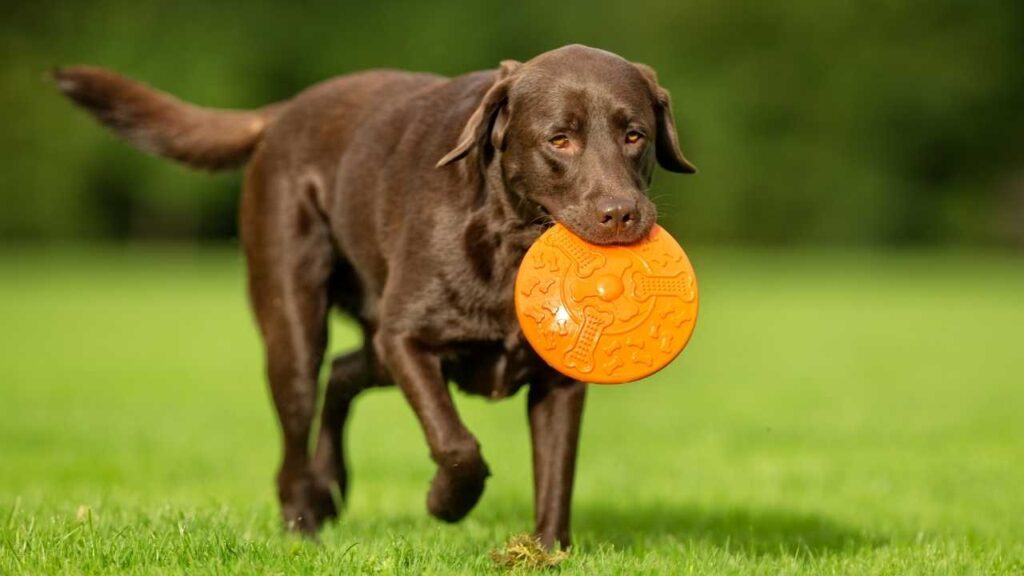
Labrador loves a long game of fetch, swimming sessions, and joyful runs. Labs need daily exercise; aim for at least an hour of active play or exercise. As per PetMD, they need to channel their energy through fun activities such as scent work, agility, obedience, hiking, etc.
German Shepherds need vigorous exercise and mental stimulation. They do best with tasks such as scent games, obedience, agility, and protection sports. Their double coat needs regular brushing during heavy shedding seasons.
Both breeds are high-energy dogs compared to low-energy breeds. If you are an active owner who likes long hikes, fetch sessions, and training, either could be perfect.
If you want a low-effort couch potato? Look elsewhere.
Choosing the Right Breed for Your Lifestyle
Honestly, how to decide between these two working dogs? Let us help you with a mind map.
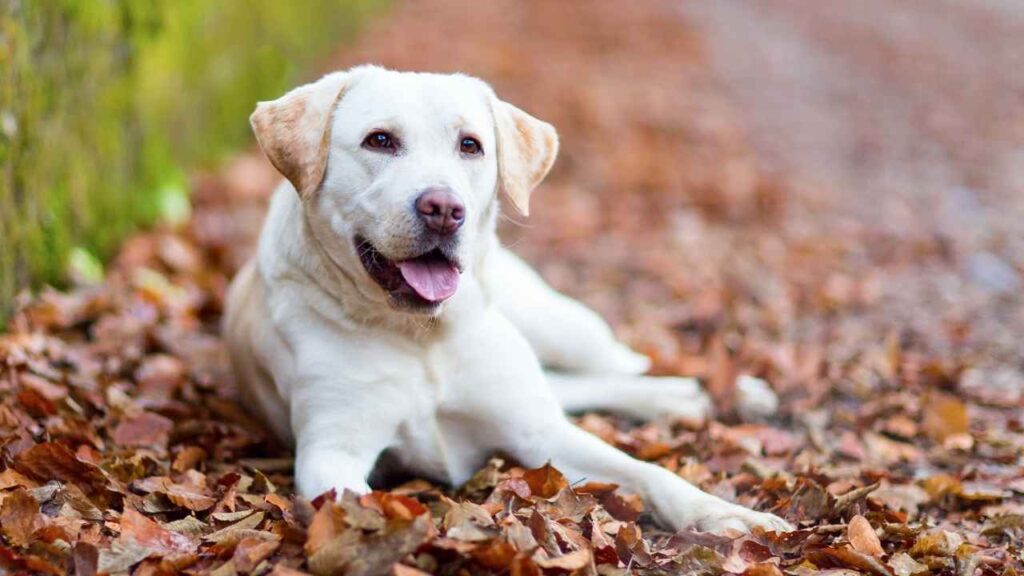
Pick an American Labrador Retriever if you want:
A sweet and family-friendly dog who loves kids and strangers.
A dog that excels at playing fetch, swimming, and serving as a loyal family member.
A relatively easygoing temperament with training and food control.
Pick a German Shepherd if you want:
A protective, highly intelligent, and task-driven companion.
A dog that can serve as a guard dog or a highly trainable dog.
An owner ready to commit to more training, structure, and enough exercise.
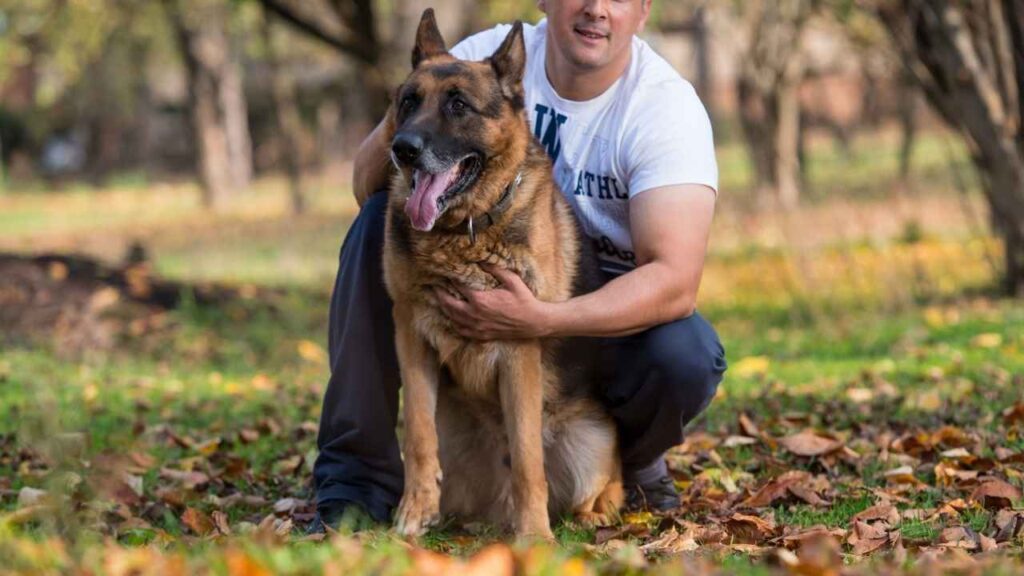
If you have small children, Labs often mix smoothly. A German Shepherd can be excellent around kids with training. For active owners, the Shepherd might be a better fit. For dog lovers who want a fun-loving and goofy dog, Labs may be the best bet.
Conclusion
Pick the dog that is perfect for your daily life, not the dog you wish your life were. Both breeds give incredible loyalty, companionship, and purpose. These two dogs need exercise, training, and responsible ownership, and both will repay your efforts TENFOLD!
So, where are you leaning toward? German Shepherd vs. American Labrador Retriever?
Either way, you will get a friend for life. And, isn’t that the whole point?


